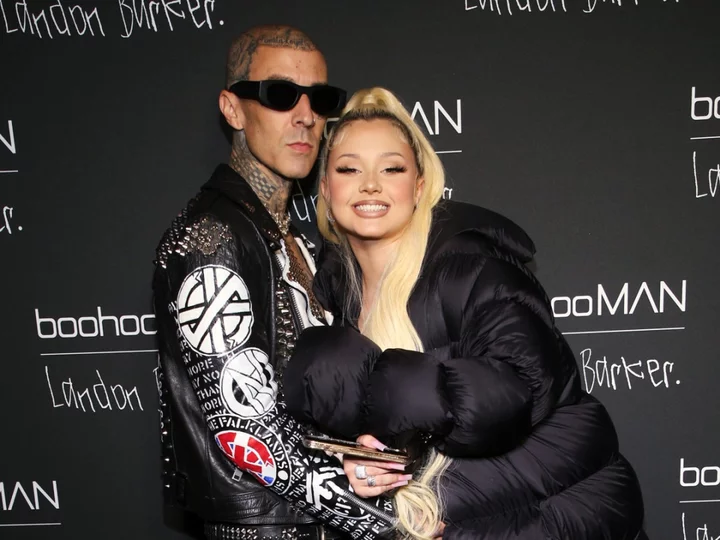
Alabama Barker shares struggle with autoimmune and thyroid disease amid body-shaming comments
Alabama Barker has revealed she struggles with an autoimmune and thyroid disease while addressing body-shaming comments about her weight. The youngest daughter of Blink-182 drummer Travis Barker hit out at body-shamers on TikTok after viral paparazzi photos led critics to refer to her as a “catfish”. The 17-year-old began her video by scowling at the camera, before she told her followers: “That’s my face when I see all the fake pages commenting about my weight in paparazzi pictures and saying I’m a catfish or saying I’m fat.” Barker went on to explain how “paparazzi will purposely take pictures” with “your mouth open, middle of sentence and any ugly picture they can get of you just for views”. “I would love to see you guys getting random pictures of you taken of you when you’re leaving the grocery store, in the middle of a sentence, with your mouth wide open - and let’s see how beautiful you look,” she said in the 20 August TikTok. She then revealed that fluctuations in her weight have been a result of her autoimmune and thyroid disease. According to Johns Hopkins Medicine, problems with the thyroid include a variety of disorders that can result in the gland producing too little thyroid hormone, called hypothyroidism, or too much thyroid hormone, called hyperthyroidism. Thyroid disorders can affect heart rate, mood, energy level, metabolism, bone health, and the body’s reaction to other hormones. “I also have a thyroid problem and an autoimmune disease, so that’s one of the main reasons why I have weight gain,” Barker said. “So, it would be very appreciated if you guys just keep your opinions to yourself. It will get you further in life.” The teen added that once her thyroid and autoimmune disease are “balanced,” she will go back to her “normal weight”. However, Barker emphasised that she’s only gained “five, 10 pounds” amid her health struggles, which she said is “so normal” for women. “I don’t want any girls that are young, watching this that are gaining weight to ever think there’s something wrong with it,” she continued. “There is a certain point when your health is getting affected by it that you need to change it, but, no. It’s not the case for me, and I would appreciate if you guys put yourself in my shoes.” @alabamabarker ♬ original sound - Alabama barker Since it was posted, Barker’s video has received more than 12m views and nearly two million likes. Many fans applauded Barker in the comments for opening up about her health struggles and shutting down body-shamers. “She’s so real with the thyroid comment because same,” one TikToker commented. “I have thyroid problems and an autoimmune disease too so I understand,” another fan wrote. “Weight really does fluctuate.” A third person said: “You are beautiful!! Stay strong!” Barker’s video comes after paparazzi snapped photos of the 17-year-old with her father, Travis Barker, and her pregnant step-mother, Kourtney Kardashian Barker. The Keeping Up with the Kardashians alum was seen sporting her growing baby bump, while Alabama was dressed in a graphic black T-shirt, black sweatpants, and an oversized hoodie. This is not the first time Barker has addressed negative social media comments. In April, she called out internet users who shamed her for wearing makeup, claiming that she was too young to wear a full glam. “When Kathryn with three kids only waterline liner, four different coloured blonde, and Tom shoes, talk about my makeup or age,” she captioned her TikTok video, which included the background audio: “I’ll tell you what you look like, but you won’t like it.” Alabama Barker is the youngest daughter of Travis Barker and Shanna Moakler. The former couple - who were married from 2004 to 2008 - share 19-year-old son Landon Barker as well. The drummer is also the adoptive father of Moakler’s oldest daughter, Atiana De La Hoya. Meanwhile, Travis and Kourtney revealed they were expecting their first child together last June. The reality star shares three children - Mason, 13, Penelope, 11, and Reign, eight - with ex Scott Disick. Barker and Kardashian tied the knot in May 2022. Read More Travis Barker discusses potential baby names for son with Kourtney Kardashian: ‘Even he knows it’s bad’ PrettyLittleThing advert banned for portraying 16-year-old Alabama Barker in a ‘sexual way’ Travis Barker praises Kourtney Kardashian for ‘healing’ him as he takes 30th flight following deadly crash
2023-08-23 00:25
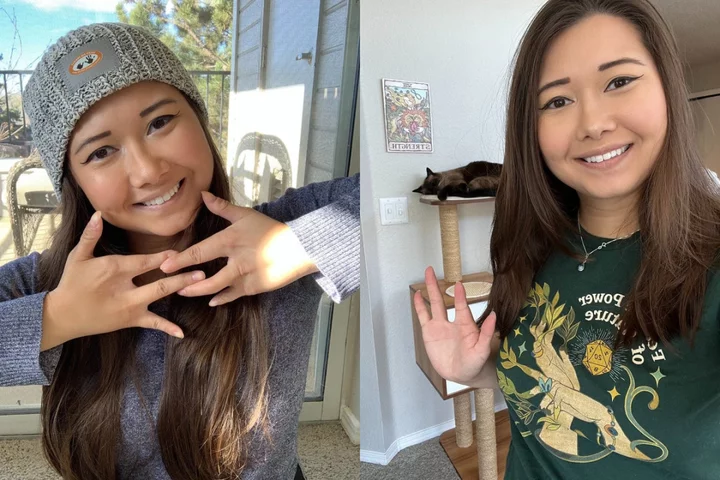
Woman with four digits ‘identified with Mickey Mouse growing up’ wants to be role model she never had
A 27-year-old woman with a rare genetic disorder who could only identify with Mickey Mouse while growing up due to the shape of the Disney character’s hands is trying to be the role model she never had as a social media influencer, to show people with disabilities they are “fully worthy and capable” of achieving anything. Rochelle Muir, who lives in Colorado, was born with ectrodactyly, which means she has three fingers and a thumb on each hand, two toes on her right foot, and four toes on her left foot. The condition causes difficulties in buying footwear, and with relationships – with one of her ex-boyfriends splitting up with her due to the possibility of their child being born with ectrodactyly – but she is now happily partnered with Charles, 31, a primary school counsellor who, along with her father Bill, is her “biggest cheerleader”. Rochelle, who is a client engagement manager for a healthcare company, could identify with characters such as Mickey Mouse growing up as he also has four digits, but she said “being like a cartoon is not exactly the role model you want”. She now posts pictures and videos on her social media platforms to educate others about ectrodactyly, raise awareness of the limb difference community, and share her hobbies, including gaming. “I remember specifically always loving the characters which had brown hair whenever they were in Barbie movies because I thought, ‘Oh, she’s like me!’,” she told PA Real Life. “But I never had that feeling when it came to my limb differences.” Rochelle has never let the disorder hold her back despite being teased and bullied at school, but when she entered the dating world in her 20s, she faced rejection multiple times and felt she was not “capable or worthy of having an amazing relationship”. “I’ve never been rejected over something that I couldn’t change about myself, something I was born with, and that was probably the first hit to my confidence with my limb differences where I felt awful about being born the way I am, about being disabled,” she said. “I just thought, I’m never going to find a meaningful relationship, I’m not worthy, I’m not capable, and that was the dialogue that kept going through my brain over and over again.” Rochelle has since removed “that nasty little voice out of (her) head”, found love with partner Charles, and shared her story publicly on social media, as she wants to “uplift” others among the disability community and show the world that “disabled is not a dirty word”. She said she is no longer “worried about showing (her) true self” and wants to encourage others to do the same. “Most people usually point out the negatives, but there are so many great positives with going and finding other people that look like you, other people you can connect with, and just creating this amazing community where you can uplift each other,” she said. “That’s one of the things I love about social media so much because when I came out about my limb differences, other people reached out and said, ‘Hey, I look exactly like you, this is so exciting, I’ve never seen anyone else that has the same hands as me’. “So it’s one of my favourite things now – and, yes, it’s sad that we didn’t have that growing up, but at least it’s there now and we can have that moving forward.” Ectrodactyly is a rare genetic disorder, and symptoms can vary, the National Organisation for Rare Disorders says. Rochelle underwent surgery to minimise the gap between her fingers and remove the longer toe on her right foot, enabling her to have improved grip and wear shoes from a young age. However, finding the right shoes has been an ongoing challenge and, when she was younger, she could not understand why she could not wear the same shoes as “able-bodied” people. “I remember specifically, there was a time, I think I was about five, that I tried to get my mum to buy me a pair of flip flops – they were pink, and they had butterflies and flowers on them,” she said. “My mum was so heartbroken because she couldn’t fully explain to me, ‘No, you can’t wear these shoes, they are going to be too dangerous for you’. “She eventually just caved and got me the shoes, and we were going up the escalator to go to the next floor in the mall, and I tripped, and we fell. “Ever since then, I’ve thought, I’m going to wear shoes that will stay securely on my feet.” Throughout her life, Rochelle has used humour to “defuse” awkward or uncomfortable situations and to enhance her confidence, but when it came to dating, for the first time in her life she felt self-conscious and “unworthy of having a real relationship”. She remembers one boyfriend who “was like a deer in the headlights” when he saw her feet for the first time, and another who ended the relationship over the possibility of their child being born with ectrodactyly. “He talked to his family, and his mum at the time said, ‘You need to decide whether you want to have kids because if you do, you have to break up with her’,” Rochelle explained. “The relationship ended, and I thought, I can’t blame him, but when I spoke to my friends, they said, ‘You’re amazing. What’s wrong with having a child with a limb difference?’ “That’s when I realised that I had internal ableism, where I told myself that having a disability is awful – ‘you’re not capable, you’re not worthy of having an amazing relationship’.” Ableism is discrimination in favour of able-bodied people – and it was at this point that Rochelle decided she wanted to do something about the lack of representation for people with ectrodactyly on social media. This “lit the fire” in her to share her story publicly for the first time, aged 25, and she has never looked back. Since then, she has launched her own Instagram, TikTok and YouTube channels on which she discusses ectrodactyly, limb differences and other disabilities, along with her hobby of gaming, and she has met Charles. Reading positive comments and messages, including from mothers of children who describe her as “an amazing role model”, has been “heart-warming” and makes her emotional – and she wants to continue to “fight ableism and bring more representation for the limb difference community”. “The biggest thing for me is representation for the limb difference community, but also for other disabilities as well, because the more we have that out there, the more of a norm it will be,” she said. “I want to be that role model, that person I wanted to look for in social media growing up, that person that younger me would be proud of and say, ‘Oh yeah, I know her, she’s so awesome, I’m just like her’. “It’s a younger me that inspires me to keep going forward and talking about these things, and I want to give the message that disabled is not a bad word, it’s not a dirty word, and you are fully worthy and capable of anything you put your mind to.” Find out more about Rochelle and her social media channels at beacons.ai/goodmornindreamer Read More Tempted to try barefoot running? Here’s what you need to know Can a vegan diet help with hot flashes in menopausal women? Why are wellbeing experts concerned about the ‘lazy girl job’ trend? Tempted to try barefoot running? Here’s what you need to know Can a vegan diet help with hot flashes in menopausal women? Why are wellbeing experts concerned about the ‘lazy girl job’ trend?
2023-08-22 22:23
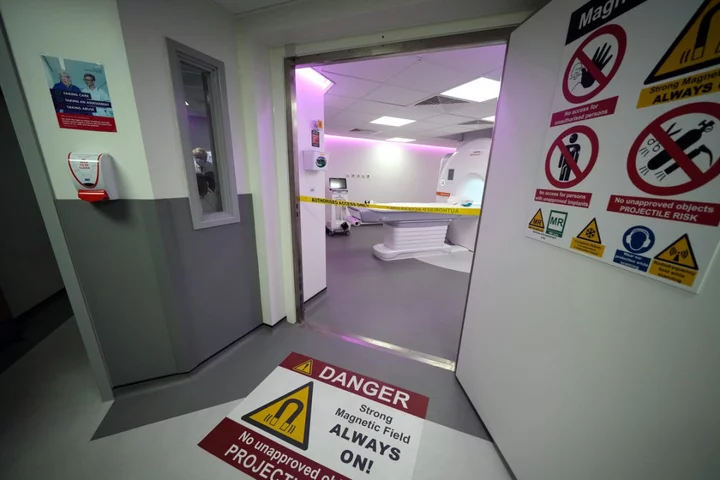
Prostate screening ‘could save lives’ – the symptoms and risk factors you need to know
There are more than 47,000 men diagnosed with prostate cancer every year in England but new research says using MRI scans can reduce deaths caused by the disease. Current tests usually detect the level of the protein prostate-specific antigen (PSA) in the blood, but scientists say this has meant overdiagnosis and overtreatment of low-risk cancer. The Reimagine study, by University College London, University College London Hospitals NHS Foundation Trust and King’s College London, invited 303 men aged between 50 and 75 to have a screening MRI and a PSA test. Of those men, 48 (16%) had an MRI that indicated prostate cancer despite having a median PSA density – 32 of those had lower PSA levels than the current screening benchmark, meaning they would ordinarily not have been referred for investigation. After NHS assessment 29 were diagnosed with cancer that required treatment, and three were diagnosed with low-risk cancer with no need for treatment. Prof Caroline Moore, consultant surgeon at UCLH, chief investigator of the study and NIHR research professor, called the findings “sobering”. She said: “Our results give an early indication that MRI could offer a more reliable method of detecting potentially serious cancers early, with the added benefit that less than 1% of participants were ‘over-diagnosed’ with low-risk disease.” What is prostate cancer? Prostate cancer is the UK’s most common male cancer. It affects the prostate – a walnut-sized gland that sits beneath the bladder and surrounds the urethra in people born with male sex organs. Its main purpose is to help produce semen (the fluid that carries sperm). Prostate cancer can develop when cells in the prostate start to grow in an uncontrolled way. While some prostate cancers grow quickly and spread, others grow too slowly to cause any problems and therefore will never need any treatment. What are the risk factors “Prostate cancer is a disease we tend to see in older age groups (over-50s), but there are exceptions, as with any form of cancer,” said Dr Sanjay Mehta, GP at The London General Practice. According to Prostate Cancer UK black men are at a higher risk – one in four black men will get prostate cancer in their lifetime (compared to one in eight for other men). The risk increases after the age of 45. Family history is important too; your father or brother has had prostate cancer or your mother or sister has had breast cancer, your risk is higher. What are the symptoms? Often there aren’t any signs in the early stages, so be aware of your own risk factors and chat to your doctor if concerned. Prostate Cancer UK have an online risk checker you can use too. Mehta said to watch out for urinary symptoms and changes to how you urinate. “So frequency, where you need to go more often. Hesitancy, where you’re standing over the toilet bowl and a period of time will pass before you’re able to pass urine, and ‘dribbling’, where you’ve finished but find you’re still passing when you walk away. “These are common in older men anyway. But if it’s new for you, and you find you’re having to go more often at night, and you’re having hesitancy or urgency, see your doctor.” Other things to get checked include erectile dysfunction, blood in your urine, and any new and unexplained lower back pain. “Then there are general systemic symptoms, like lethargy, lack of appetite,” added Mehta. “Again, these things often happen anyway, but if it’s a change for you and it’s been happening for a couple of weeks, see your doctor.” How is prostate cancer diagnosed and treated? First, your doctor will chat through your symptoms and history with you. “The next step would involve an examination, including a rectal examination of the prostate,” said Mehta, before referral for further investigations. “I appreciate this can put some men off seeing their doctor but it is a very helpful way of assessing things”. After diagnosis, treatment depends on the stage of the cancer and what’s suitable for each individual, but it may include surgery or radiotherapy. Caught early, prostate cancer is generally very treatable. And even with advanced prostate cancer, treatments have come a long way. Read More Charity boss speaks out over ‘traumatic’ encounter with royal aide Ukraine war’s heaviest fight rages in east - follow live Keep fit to avoid heart rhythm disorder and stroke, study suggests How to give your home a proper summer sort out What you really need to do in autumn to keep your lawn in shape
2023-08-22 18:55

Sienna Miller pregnant with her second child
Sienna Miller is currently expecting her second child, it has been reported by multiple outlets. Photographs of the Lost City of Z star published by People magazine reveal Miller with a visible baby bump while on a beach holiday in Ibiza. The 41-year-old actor was pictured in a brown string bikini, with gold accessories, and could be seen smiling as she enjoyed the sea breeze. In one image, she wrapped a grey towel with a red stripe around her hips, accentuating her growing bump. Her second pregnancy comes 10 years after the birth of her first child, Marlowe, whom she shares with her former fiance, The Sandman star Tom Sturridge. According to the outlet, Miller was seen spending time with her boyfriend, actor Oli Green, in St Tropez before arriving in Ibiza. She has not commented publicly on her pregnancy and it is unclear what stage she is in. The Independent has contacted Miller’s representative for comment. Last December, Miller opened up about being a parent to British Vogue. She said she “loves being a mother”, adding: “It’s what I do best.” However, the American Woman star has also felt “pressure” to expand her family after turning 40. Speaking to Elle UK, Miller described questions surrounding whether she should have more children and why she has not as “a really loud noise”. “Biology is incredibly cruel on women in that decade – that’s the headline, or it certainly was for me,” she said. “Then I got to 40 and I froze some eggs. Having been really focused on the need to have another baby, I’m just like, if it happens, it happens. That kind of existential threat has dissipated.” Miller and Sturridge dated from 2011 to 2015, and their daughter was born in July 2012. They continue to be good friends and co-parents, and have been known to travel together and stay at one another’s houses as they continue to put Marlowe first. “It’s not like there’s a structure for custody,” Miller told Elle UK in 2019. “We make it work. It’s not conventional.” Reflecting on her relationship with her daughter, Miller told People: “When you are raising a child you see aspects of your character in that person, reflected back, and it’s the most loving, intense relationship that I have. There’s nowhere to hide. “She knows me, I know her. She’s really stubborn, which is very like me. I see her as her own person but I also see genetic things. She’s heaven, my kid.” Read More No music, no ball games, no fun: society is wiping out play Comedian Mark Watson says three-year affair was way of avoiding ‘the fact I wasn’t special’ Rihanna and A$AP Rocky reportedly welcome second child together Jana Kramer reveals she couldn’t brush her teeth for three months while pregnant Mom documents at-home abortion to destigmatise abortion pills Rumer Willis addresses criticism over breastfeeding photo with her child
2023-08-22 16:16
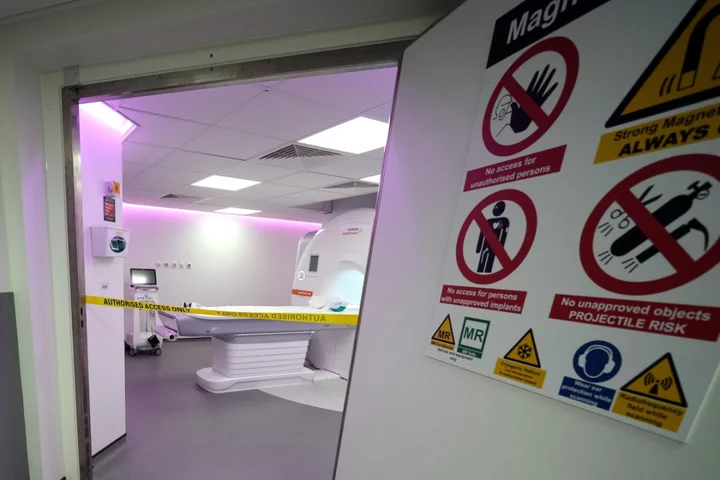
MRI screening for prostate cancer could help save lives, study finds
Using MRI scans to screen men for prostate cancer could reduce deaths from the disease “significantly”, researchers have suggested. Scientists said current tests, which detect the level of the protein prostate-specific antigen (PSA) in the blood, have been linked to over-diagnosis and over-treatment of low-risk cancer. Prostate cancer is the most common cancer found in men and, at the moment, those aged over 50 can request a PSA test if they are experiencing symptoms. The Reimagine study invited 303 men aged between 50 and 75 to have a screening MRI and a PSA test. Of the total, 48 (16 per cent) had an MRI that indicated the presence of prostate cancer despite having a median PSA density. Of the group, 32 had lower PSA levels than the current screening benchmark of 3ng/ml, meaning they would not have been referred for further investigation. After NHS assessment, 29 men were diagnosed with cancer that required treatment, 15 of whom had serious cancer and a PSA of less than 3ng/ml. Three men (1 per cent) were diagnosed with low-risk cancer that did not require treatment. Our results give an early indication that MRI could offer a more reliable method of detecting potentially serious cancers early Prof Caroline Moore The study was led by University College London, University College London Hospitals NHS Foundation Trust and King’s College London and is published in medical journal BMJ Oncology. Prof Caroline Moore, consultant surgeon at UCLH, chief investigator of the study and NIHR research professor, said the findings are “sobering” and “reiterates the need to consider a new approach to prostate cancer screening”. “Our results give an early indication that MRI could offer a more reliable method of detecting potentially serious cancers early, with the added benefit that less than 1 per cent of participants were ‘over-diagnosed’ with low-risk disease,” she added. Prof Mark Emberton, consultant urologist at UCLH, said: “The UK prostate cancer mortality rate is twice as high as in countries like the US or Spain because our levels of testing are much lower than other countries. “Given how treatable prostate cancer is when caught early, I’m confident that a national screening programme will reduce the UK’s prostate cancer mortality rate significantly. There is a lot of work to be done to get us to that point, but I believe this will be possible within the next five to ten years.” Nick James, a professor of prostate and bladder cancer research at the Institute of Cancer Research in London said the study “further reinforces the value of MRI in the diagnostic pathway for prostate cancer”. “The well-known limitations of the old PSA-based screening studies of over- diagnosis and linked over-treatment are increasingly mitigated by the use of MRI,” he added. “Similarly, MRI can also spot cases of prostate cancer in patients with normal PSA levels, who would have been missed using PSA only screening programmes.” MRI scans have revolutionised the way we diagnose prostate cancer, and it’s great to see research into how we might use these scans even more effectively Simon Grieveson, Prostate Cancer UK Prof Sir Mike Richards, chairman of the UK National Screening Committee (NSC), said the organisation does not currently recommend prostate cancer screening “because there is no clear evidence that the benefits outweigh the harms”. However, it is preparing to look at various proposals. He added: “The UK NSC will soon commission a major piece of work to consider six prostate cancer screening proposals that were submitted during its annual call for topics. “These include targeted and risk-stratified screening proposals for screening groups of men at higher risk due to factors such as ethnicity and family history.” Simon Grieveson, assistant director of research at Prostate Cancer UK, said: “MRI scans have revolutionised the way we diagnose prostate cancer, and it’s great to see research into how we might use these scans even more effectively. “These results are extremely exciting, and we now want to see much larger, UK-wide studies to understand if using MRI as the first step in getting tested could form the basis of a national screening programme.” Another trial, known as Limit, is being conducted with a much larger number of patients, which the research team said is the “next step towards a national prostate screening programme”. The trial will also attempt to recruit more black men, after the team behind Reimagine found they were much less likely to respond to the invitation to screening than others. Saran Green of King’s College London said: “One in four black men will get prostate cancer during their lifetime, which is double the number of men from other ethnicities. “Given this elevated risk, and the fact that black men were five times less likely to sign up for the Reimagine trial than white men, it will be crucial that any national screening programme includes strategies to reach black men and encourage more of them to come forward for testing.”
2023-08-22 14:58

Jana Kramer reveals she couldn’t brush her teeth for three months while pregnant
Jana Kramer has revealed one of her unlikely triggers for morning sickness. During the 21 August episode of her podcast, Whine Down, the singer explained that toothpaste has made her nauseous throughout her pregnancy. “This is gross but, like, the water and mint [of toothpaste] made me want to vomit in the first trimester, so I couldn’t brush my teeth,” she said. “Like, I just used [Colgate] wisps,” she explained, referring to single-use toothbrushes meant to be used on-the-go, as they don’t require toothpaste. Instead, the toothbrushes have a built-in “freshening bead” that dissolves as you brush. The singer explained that she tried to regularly brush her teeth on multiple occasions, before resorting to her other method. “I would try and then I would gag and then I’d puke and so, it just wasn’t worth the extra puke of the day,” Kramer added. During the podcast, she discussed how nervous she was when the time finally came to go to the dentist, after spending three months not brushing her teeth. Luckily, it appeared to have worked in her favour, as her dentist let her know that she “did a really good job for not brushing your teeth in three months.” “He goes, ‘Everything looks good. Where you’re saying the pain is under a cavity, it’s a cavity tooth,’” the One Tree Hill alum said. “So, he’s like, ‘Nothing looks like it’s cracked or seeping or anything.’ He’s like, ‘I can’t do anything anyway ‘cause your pregnant. But a lot of women - when they’re hormonal - it hurts more, your teeth.’” Kramer also shared in her podcast that she recently discovered cavities can be genetic, and that people can end up with poor teeth despite how well they take care of them. “It makes sense now ‘cause my daughter has two cavities - she’s seven - on her adult teeth,” Kramer explained. “So, I’m like, ‘Oh, I gave it to my daughter.’” She shares daughter Jolie, seven, and son Jace, four, with ex-husband Mike Caussin. In June, Kramer announced she and her fiancé, Allan Russell, are expecting their first child together. “We’ve been keeping another secret from you guys (I promise this is the last announcement... at least for a little while) but I’m pregnant!!!!” she captioned an Instagram post. “Beyond blessed and grateful for this baby to be a part of our story. I never thought I would see the word pregnant again on a test, but I’m thankful for @clearblue for making it as clear as ever,” Kramer added. On her podcast, she revealed that they were expecting a boy. In addition to her aversion to toothpaste, the singer also revealed some of her other pregnancy symptoms in an Instagram Story post on 20 August, per US Weekly. “In the first trimester, I couldn’t really stomach anything but a bagel and cream cheese and now the thought of a bagel and cream cheese makes me want to vomit,” she wrote. “I can’t eat any sweets or my stomach hurts. I’m still nauseous throughout the day but it’s worse at night and in the morning.” Read More Jana Kramer claims her ex-husband cheated on her with ‘more’ than 13 women Jana Kramer clarifies Chris Evans ‘bathroom ghosting’ incident Jana Kramer says brief relationship with Chris Evans ended after ‘mortifying’ bathroom incident
2023-08-22 14:20
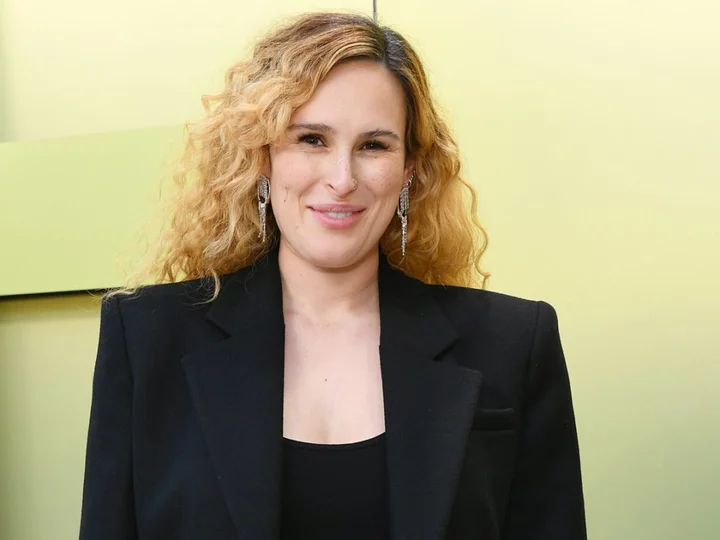
Rumer Willis shuts down criticism over breastfeeding photo with her child: ‘I am the happiest I have been’
Rumer Willis has hit back at online criticism over a photo of herself breastfeeding her daughter, Louetta. The actress took to Instagram on Friday to share a post in honour of her 35th birthday, which featured the selfie of her breastfeeding her daughter, who she welcomed in April with boyfriend Derek Richard Thomas. In the comments, many of her followers criticised her for sharing the photo, with questions about “why” she posted it on social media. However, Willis - the daughter of Bruce Willis and Demi Moore - didn’t hesitate to hit back at the criticism, as she started off by simply responding to the “why?” question with: “Cause I want to.” Another Instagram user also alleged that Willis posted the photo “for attention,” with claims that “nursing a baby is very private and should not be displayed like a circus event”. In response, Willis expressed how she viewed the ability to feed her daughter as a “privilege,” and accused the critic of holding “a limited view of” breastfeeding. She continued her comment by defending her decision to post the photo, and explaining how she wanted it to lessen the “shame” that women face. “I think it’s incredibly important to share because there is an incredible amount of shame that comes with being born into a female body,” Willis wrote. “And I want to lead by example in teaching my daughter that she doesn’t have to be ashamed of her body ever and that she can decide how she wants to share it.” When a third critic on Instagram claimed that the Sorority Row star was a “narcissistic” and “insecure”, she responded by telling them that she “really couldn’t care less about [their] opinion,” or about what they “think [she’s] doing,” since she knows what her “intentions” are. After claiming that she “pitied” the critic, she went on to emphasise that being able to breasfeed, in addition to being a mother, is a “privilege”. “[It’s one] I definitely don’t take for granted,” she wrote. “So I will celebrate every sec of this journey because this is my first time doing all of this and I honour and have the deepest reverence for all of the women who have walked this path before me.” She concluded: “I’m sharing because things like breastfeeding need to be honoured instead of shamed. I feel so sorry for you. I am the happiest I have ever been in my life.” Earlier this year, Willis took to Instagram to announce the birth of her daughter with Thomas. “Louetta Isley Thomas Willis. You are pure magic,” she wrote in the caption, alongside a snap of her then-newborn. “Born at home on Tuesday April 18th. You are more than we ever dreamed of.” Willis’ response to critics over her breastfeeding photo also comes days after she celebrated her body on Instagram. As she shared a nude photo of herself, she wrote that, although her body “feels a little different,” she’s “truly in awe everyday” when she looks at her child. She went on to praise her body for how it looked, while acknowledging that her body was “still redjusting” after giving birth. “This body of mine that I spent so many years trying to shape and mold into what I thought was desirable or made me feel good in clothes, is a little softer and rounder and jiggly and different and that’s okay, more than okay, it’s kind of amazing because I grew a person inside of it,” she wrote. “This little being that I love with a fierceness and wonder that reaches new levels everyday. I know my body is still readjusting, but whatever shape it ends up in I am just grateful for all that it did and continues to do.” She also described her breasts as a “gift” to her baby, before detailing the different ways in which she’s used her body to care for her child. “In the ongoing process of transformation, I am grateful for every twist and turn,” Willis continued. “My breasts, might be bigger and perhaps ever so drifting downward but what a gift and privilege that they can feed and provide nourishment for my Lou. They also make a fantastic pillow while we co sleep. My hips and tummy, now softer and rounder, cradle my daughter in safety, warmth, and love.” Read More Rumer Willis says she is ‘grateful’ to her body following birth of daughter Bruce Willis’ daughter Tallulah speaks out about his early signs of dementia before announcing diagnosis Bruce Willis’ wife Emma Heming Willis says she is ‘not good’ amid his ongoing struggle with dementia Rumer Willis says she is ‘grateful’ to her body following birth of daughter Jana Kramer reveals she couldn’t brush her teeth for three months while pregnant Mom documents at-home abortion to destigmatise abortion pills
2023-08-22 06:27

US FDA approves Pfizer's maternal RSV vaccine to protect infants
By Patrick Wingrove and Bhanvi Satija The U.S. Food and Drug Administration on Monday approved Pfizer's respiratory syncytial
2023-08-22 05:52
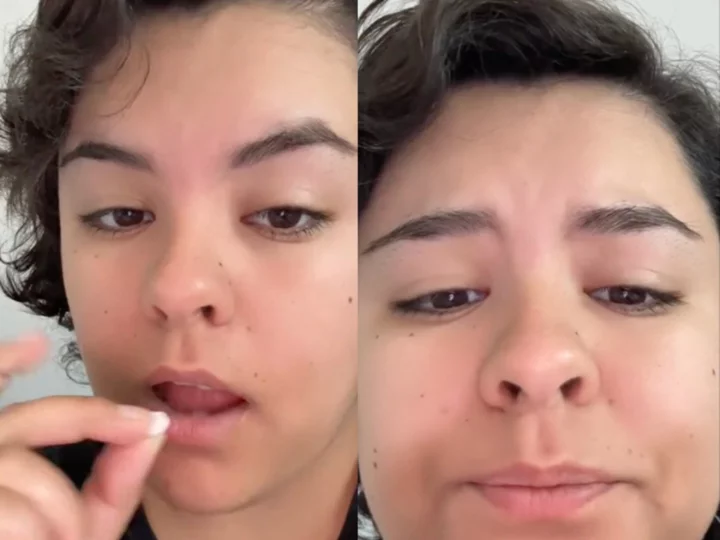
Mom documents at-home abortion to destigmatise abortion pills
An internet-wide debate has resulted from one brave woman’s choice to detail her at-home abortion experience on TikTok. On 20 July, a 24-year-old woman named Monica showed her TikTok followers how she completed her abortion, from the comfort of her home, for the first time at nine weeks pregnant. She began by showing the items she needed to prepare her body: the required prescription drug typically used for terminating early pregnancy, motion sickness medicine, a bottle of water, maxi pads, and Planned Parenthood’s timely instructions. “It is highly recommended to take ibuprofen (with food) and anti-nausea pills 30 minutes before your first dose of abortion pills which I did here,” she said. For her first dose, Monica – who already has one daughter – was required to put four pills in the sides of her mouth and keep them there for 30 minutes. Then, she washed down the tablets with water. Speaking with Newsweek, the woman explained why she decided to share her abortion experience using the medications mifepristone and misoprostol, which are typically prescribed to terminate early stages of pregnancy. “My hope would be that abortion becomes more normalised and seen as what it is - healthcare,” she confessed. “I wanted to create a safe space for women to come forward and share their experiences and stories about their abortions without the fear of being judged or criticised.” The 24-year-old continued: “I’ve noticed that the media tends to ignore the topic of abortion as a whole and I thought, ‘Well, maybe if I come forward and share my own journey, we can finally talk about it.’” Her video showing the side effects of using the “abortion pill” - mifepristone and misoprostol, prescribed by Planned Parenthood - has now reached over 3.1m views. However, it’s received mixed emotions and reactions online. @monicathehuman TW: Abortion Pro-Lifers please dni. This is my personal experience with abortion pills and how I prepared for the day. There is a lot left out so if you have any questions please feel free to ask and I’ll do be my best to go into more detail! Side note: I am a 24 year old mother of one. Overall, the pain was at a 10 for me and I have a very high pain tolerance and personally, it felt like being in labor without an epidural. Just note, this experience is NOT expected for everyone! For others it may just feel like a very bad period and I am someone who luckily doesn’t experience period cramps so this is not a usual thing for me! A special shoutout to @Planned Parenthood for helping my experience run smooth and quickly ❤️ My symptoms the first 12 hours: •Slight Nausea in the first 15 min. •Diarrhea •Dizziness •Fatigue after 10 hours My symptoms the morning after: •Spotting Resources: Need to talk to someone about your abortion experience? Text: 617-749-2948 Or Visit: https://www.mahotline.org/ for any info or support to self-manage a miscarriage or abortion #plannedparenthood #abortion #abortionpill #prochoice #abortionexperience #mifepristone #misoprostol ♬ Chopin Nocturne No. 2 Piano Mono - moshimo sound design While some followers thanked Monica for her vulnerability, others were opposed. “Thank you for posting. I’ve never known how these kind of abortions work,” one woman wrote. “Wtf why is this on TikTok?” another person said. “I definitely felt hesitant about documenting my abortion because I was so worried about the kind of response I would get,” Monica told Newsweek. “It was my attempt to reach out to those who may feel alone or unsupported through such a vulnerable event and to show that there is nothing to hide when it comes to making a choice that is best for you.” “In all honesty, when the negativity did start rolling in, I was just so comfortable with my decision that none of them fazed me. There was nothing anyone could have said that would have changed my mind or made me regret posting my video,” she continued. “I helped so many more people than they ever could have with their hatred and that’s what mattered most to me - helping people.” @monicathehuman Here is my abortion follow-up video for everyone wondering what that looks like! Thank you all again for your support and thank you to everyone who felt safe enough to confide in me about their journeys! ❤️ You’re all so loved and this is your reminder that you are NOT alone and you are supported by SO many despite the stigma. Abortion is Healthcare! ?? • • #abortionrights #abortionishealthcare #abortion #abortionjourney #plannedparenthood #prochoice #abortionpill #mifepristone #misoprostol #abortionexperience #aidaccess #plancpills ♬ Chopin Nocturne No. 2 Piano Mono - moshimo sound design Despite the negativity, an overwhelming number of commenters were pleased to see Monica open up about her experience. Many women related to her, and offered their own advice on how to cope emotionally and physically following an abortion. One individual said: “Please priortise your mental health after this process. It could be hard, but you got this. You are strong. You did what was right for you.” “This was so informative. Thanks for sharing your story,” a TikTok user noted, while another added: “Literally saving. Bless you, for showing us the process. I was always terrified of it.” Even commenters from US states such as Texas, Mississippi, and Alabama - where bans or restrictions to abortion access have become increasingly common - encouraged her honesty, despite being located where abortion has now been made illegal and inaccessible. “I think it’s incredibly important for women to share stories like this because in a big way, it helps to destigmatise abortion,” Monica told Newsweek. “Talking to all these women and sharing our stories together also opened my eyes to see just how little support women around the world have when it comes to reproductive health.” @monicathehuman #abortion #abortionrights #abortionishealthcare #abortionjourney #prochoice #abortionexperience ♬ original sound - Moon ? “It’s a right that everyone deserves and a choice that no one should ever make without proper resources and education. It’s heartbreaking when I hear that it’s not available to everyone just anywhere,” the mother said. “In some places, it may even place a danger on people for just talking about it. I felt so powerless with my inability to help them and I can only imagine what they may feel.” She added: “I hope that my video will reach the right people who have had questions about abortion and to hopefully clear the misconceptions and lies surrounding it. It’s not as scary as many people have been taught to believe, and they are not alone.” In 2022, the US Supreme Court officially overturned the decision in Roe v Wade, which protected a woman’s right to an abortion more than 50 years ago. One year later, 13 states have implemented total bans starting from conception, while Georgia has implemented a ban after six weeks. The Independent has reached out to Monica for comment. Read More What the GOP candidates have said about abortion rights Abortion drug case likely headed to Supreme Court after Republican-appointed judges agree to restrict access Are abortions about to be even harder to get? Schoolboy almost dies from swallowing magnets for TikTok challenge Woman shares honest review of New York City apartment TikTok mom slammed after making 5-year-old son run in 104 degree heat
2023-08-22 03:22
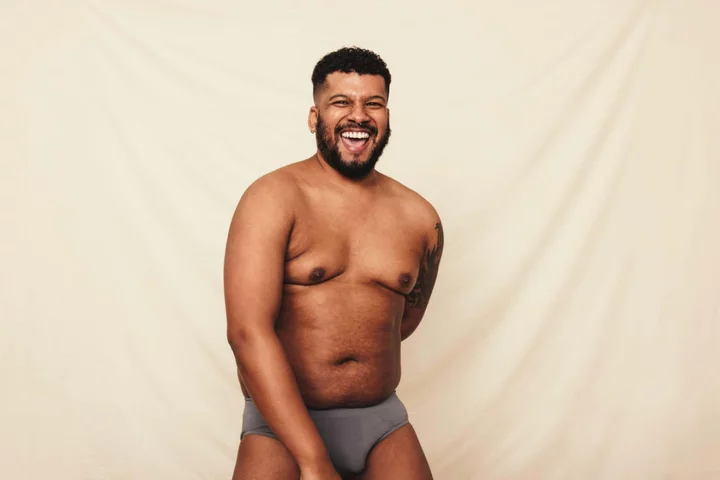
How to check breasts and testicles, as Morrisons puts NHS cancer advice in underwear labels
The NHS is working with Morrisons to put health warnings in the supermarket’s underwear about potential signs of breast and testicular cancer. Labels in the Nutmeg brand, initially in boxer shorts and crop-top bras, will offer advice on what to look for. Available in 240 shops around England in the coming months, packaging will also contain a QR code linking to the NHS website for more detailed information on breast and testicular cancer. Dame Cally Palmer, NHS England’s national director for cancer, said: “This is the first time the whole of the NHS has worked with a national supermarket brand to put health messaging on clothing, with the aim of encouraging thousands more people to be body aware, so they can spot new or unexplained changes that might be cancer symptoms early, and contact their GP practice for checks if concerned. “Cancer survival is at an all-time high – survival for both breast and testicular cancers have improved significantly over the last 50 years and we’re seeing more people than ever before diagnosed at an early stage – and this partnership with Morrisons is just one of the many ways we are ensuring people are aware of potential cancer symptoms. “I want to urge everyone to be aware of their own bodies – please look out for lumps and bumps or anything else that is unusual for you – and get checked out early, it could save your life.” Not sure how to properly check for lumps and changes? Here’s how… Breasts and pecs According to the NHS, you should see your GP if you find “a new lump or area of thickened tissue in either breast that was not there before”. Similarly, you should seek help if you see a change in size or shape of one or both breasts, discharge from either of your nipples, a change in the look or feel of your skin, a rash around the nipple, or a change in the appearance of your nipple. When physically checking them, NHS guidance says: “Look at your breasts and feel each breast and armpit, and up to your collarbone. You may find it easiest to do this in the shower or bath, by running a soapy hand over each breast and up under each armpit. “You can also look at your breasts in the mirror. Look with your arms by your side and also with them raised.” All genders have breast tissue, so everyone should get into a regular routine of checking their breasts or pecs. Charity CoppaFeel! runs a text service to remind you to check once a month. Testicles Knowing what is normal for you is vital when regularly checking testicles too. Changes to watch out for include a lump in your testicles, swelling, changes in shape and feel, aching or discomfort that doesn’t go away, or one testicle becoming bigger than the other. See your GP if you notice any of these changes. When physically checking your testicles, Macmillan Cancer Support says: “It can be easier to check the testicles during, or right after, a warm bath or shower when the scrotal skin is relaxed. Hold the scrotum in the palm of your hand. Use your fingers and thumb to examine each testicle.” Read More Charity boss speaks out over ‘traumatic’ encounter with royal aide Ukraine war’s heaviest fight rages in east - follow live What you need to know about menopause, as the UK’s first education programme announced How to create the mermaid eyes beauty look that’s trending on TikTok How to force bulbs to flower at Christmas
2023-08-21 18:48

Chris Evans reveals he’s been diagnosed with skin cancer during Virgin Radio show
Radio presenter Chris Evans has announced live on air that he has been diagnosed with skin cancer. Evans, 57, revealed on his Virgin Radio show on Monday morning (21 August) that his doctors broke the news to him just recently. However, he reassured listeners that the disease was discovered in its early stages and he is hopeful he will have a full recovery after he undergoes treatment next month. Evans said on his breakfast show: “We need to discuss what’s going on with this issue. It is a melanoma. “There’s this phrase called a malignant melanoma – you know once you get something and you find out all about it – that is a redundant phrase because if it is a melanoma, it is malignant.” He added: “But it’s been caught so early, just so you know, that it should be completely treatable.” According to The Sun, the broadcaster said his treatment is settee begin on 14 September. Evans, who is a running enthusiast, joked that he won’t be able to run for “a month afterwards”, adding: “So I’m going to do nothing but run until then. Is that OK?” He previously had a cancer scare in 2019 and revealed at the time he took a skin cancer test after finding unusual marks on his body before Christmas. That year, the radio presenter said: “I went and had a few marks on my body inspected by a skin expert before Christmas and she said. ‘You need to come and see me again, just because of your complexion’. The expert advised him to get checked once a year. Read More Barbie? Ken? Venezuela?: Why baby names won’t be boring for much longer Britney Spears posts heartbroken statement after Sam Asghari split: ‘I couldn’t take the pain anymore’ Geri Halliwell says her ‘sillier self came out’ when she met husband Christian Horner
2023-08-21 15:51
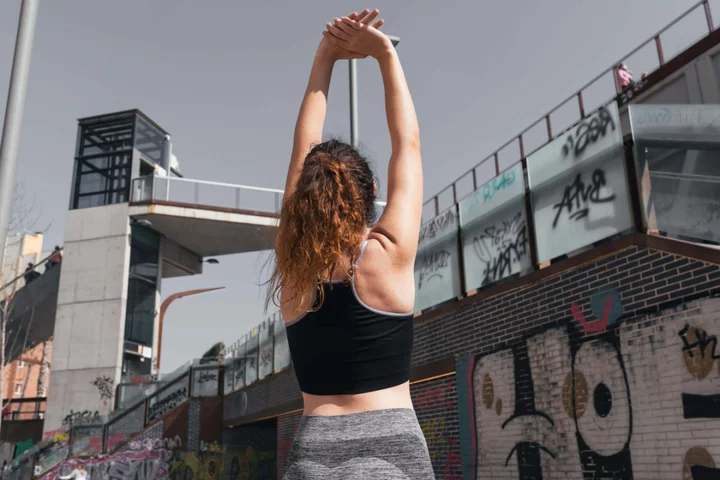
How do you choose the best sports bra for you? Experts explain what to look for
However big your boobs are, your sports bra could be holding you back from your fitness goals – if it’s uncomfortable, painful or doesn’t offer enough support. So, how can you find the perfect sports bra to help you feel and perform your best? “Finding the perfect sports bra is about enhancing performance and preventing common problems that athletes face,” says Juju Sheikh, founder of Cloud Nine Collective. “A well-designed sports bra can minimise bounce and provide the necessary support to keep you comfortable and focused on your game.” Consider size, support and impact Different-sized boobs will need varying degrees of support – but that’s not the only factor to consider when choosing a sport bra. Breast shape can also influence which bra is the best fit and style for you, as well as the impact level of the activities you’ll be doing. “Finding the right sports bra can be tricky and usually requires you to try a few different sizes and brands,” says Rebecca Carroll, a buyer for Runners Need. “The most important thing is ensuring that it fits you correctly, so that it offers enough comfort and support for your activity. “Sports bras offer three different levels of support: low, medium, and high impact. The type you need depends on your cup size and the type of exercise you do,” Carroll adds. “For those who have bigger busts, look for a sports bra which has supportive seams and underwire, to help maximise support and comfort.” Look at design features Sports bras come with a range of different design features too, which tend to correlate to the level of support they offer. This includes the fabrics, the straps, the cups, as well as how they do up/fasten or whether they’re an over-the-head crop top style. “I recommend looking for features like adjustable straps, underwire support, and breathable fabric,” says Sheikh. “Adjustable straps allow you to customise the fit according to your unique body shape and size. This ensures that the bra stays in place and provides the best support throughout your workout.” The way a bra does up will generally change how supportive it is. “Front zips can be a good thing,” says Martina Jurcova, product line manager for women’s apparel and accessories at ASICS. “They are certainly easier to put on and open again after a strenuous exercise. That said, they must have extremely secure closures and are not recommended for sports or exercises where the wearer is lying face down on an exercise mat.“Race backs are great, as they allow the maximums freedom of movement of the scapula [shoulder blade] and at the same time can give great support to the wearer,” Jurcova adds. “Dual clasp bras have the advantage that the wearer can decide for themselves if they like the feeling of a race back or not.” Match your bra with the activity Remember, the same sports bra may not be suitable for every activity. Even if you have a large bust, there are certain activities where you won’t want the restriction of a very high-impact bra. “Low-medium impact sports bras are good for activities like walking, yoga and strength training. They typically feature a cup-less design and restrict movement by compressing the bust tightly against the chest wall,” says Carroll. “However, for activities like running, you’re going to want a high-impact sports bra. These are made with a defined cup structure to encapsulate and provide high levels of support. Some high-impact bras will use a combination of both encapsulation and compression methods to maximise support.” Protect from chafe and blisters When doing an intense activity, perhaps running long distances or doing high-intensity interval training, it’s not unheard of for women to experience chafing or even blisters around the chest area. “To prevent chafing, you can apply petroleum jelly or chafe balms in areas susceptible to friction. This creates a barrier between your skin and clothing to reduce friction,” Carroll says. “Wearing well-fitting clothing, like your sports bra, will also have a big impact. Look for moisture-wicking materials,” she adds. “Generally, synthetic fabrics such as polyester and nylon can help draw the sweat away from your skin.”
2023-08-21 14:54
